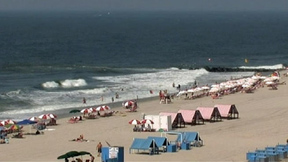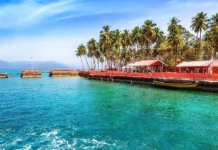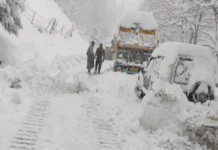 CAPE MAY COURT HOUSE, N.J.: It helps if a waiter serving a French Canadian tourist knows something about ice hockey. It’s absolutely essential he knows how the meal was prepared and what wine goes with it.
CAPE MAY COURT HOUSE, N.J.: It helps if a waiter serving a French Canadian tourist knows something about ice hockey. It’s absolutely essential he knows how the meal was prepared and what wine goes with it.
These tidbits are offered within a new, free course that aims to teach the Cape May County hospitality industry how to make French Canadian tourists feel welcome.
The county has successfully courted Canadian tourists since 1968 even opening an office in Montreal in 1970 – but a recent push farther north, to French-speaking areas in Quebec, has created a new challenge. Many people from those regions don’t speak English, even as a second language.
And they are coming to the county in large numbers. The tourism push is working.
County Tourism Director Diane Wieland told The Press of Atlantic City that people from Quebec made 665,900 overnight visits to New Jersey last year. Half of them were from Quebec, and 70 percent of the visits were in Cape May County, she said.
She expects larger numbers this year. It’s been cold in Canada this winter, with one polar vortex after another, and Wieland said vacation inquiries have skyrocketed.
“They’re spending $139 million a year in New Jersey. This is a niche market we need to expand,” Wieland said.
Wieland’s intern, Rachael Cox, a hospitality and tourism management student at Richard Stockton College, came up with the idea of having a course. Atlantic Cape Community College supplied the grant funding and expertise to make it happen.
Campgrounds, hotels, motels, restaurants and other businesses that get French Canadian tourists are welcome to attend. Cox said some basic “conversational French” will be taught, enough to help with directions, menu selections, check-in policies, telling guests where the pool is located and other vacation information.
The course will also delve into French Canadian culture.
“The goal is to have them understand the culture as it relates to hospitality and tourism,” Cox said.
Dining is a good example. Wieland said French Canadians have a European philosophy about dining. It is taken very seriously. They don’t want to be rushed. They want the waiter or waitress to be informed and helpful.
Wieland said the tourists are very value-conscious, and they tip based on the quality of service, starting at 10 percent and with 15 percent the top end. She noted Americans usually tip at 20 percent no matter how bad the service is.
“They don’t eat – they dine. If you rush them, which often happens in the summer, they will tip as they feel is necessary,” Wieland said.
Just knowing this can clear up some confusion. Some locals think Canadians undertip because they are cheap, but it’s probably because the service didn’t meet their standards, she said.
The Canadian tourist is more upscale these days. The first visitors that came from Montreal in the 1970s typically stayed in mainland campgrounds. The exchange rate was not favorable for them back then.
Wieland said the exchange rate is more favorable to Canadians now. The children of those tourists often stay in hotels or rent houses on the barrier islands. Some are not crazy about driving the long distance, and direct airplane service to Atlantic City is being explored.
Wieland said visits from Canada were up 18 percent last year and spending was up 15 percent. She said about 25 percent of these visitors who stay in Cape May County also visit Atlantic City.
The Quebec market is being courted though a radio and television ad campaign and visits at trade shows. The county has also produced tourism brochures and other information in French. Wieland noted the first visit to Quebec City in 1994 didn’t go too well because all the brochures were in English.
“Explorez le Jersey Cape!” the literature now proclaims. But once here, after they have been enticed, Wieland notes it is important to make them feel welcome, or “bienvenue,” as the brochure states.
French is being used on the department’s website. One worker in the department, Lindsay Rowland, speaks the language, and Cox is learning it.
The course also might be a good idea for area golf courses, as many Canadian visitors are coming to play the links. These visitors even come in the spring and fall shoulder seasons.
“Golfing is huge, and their golf season is very short,” Wieland said. -AP






